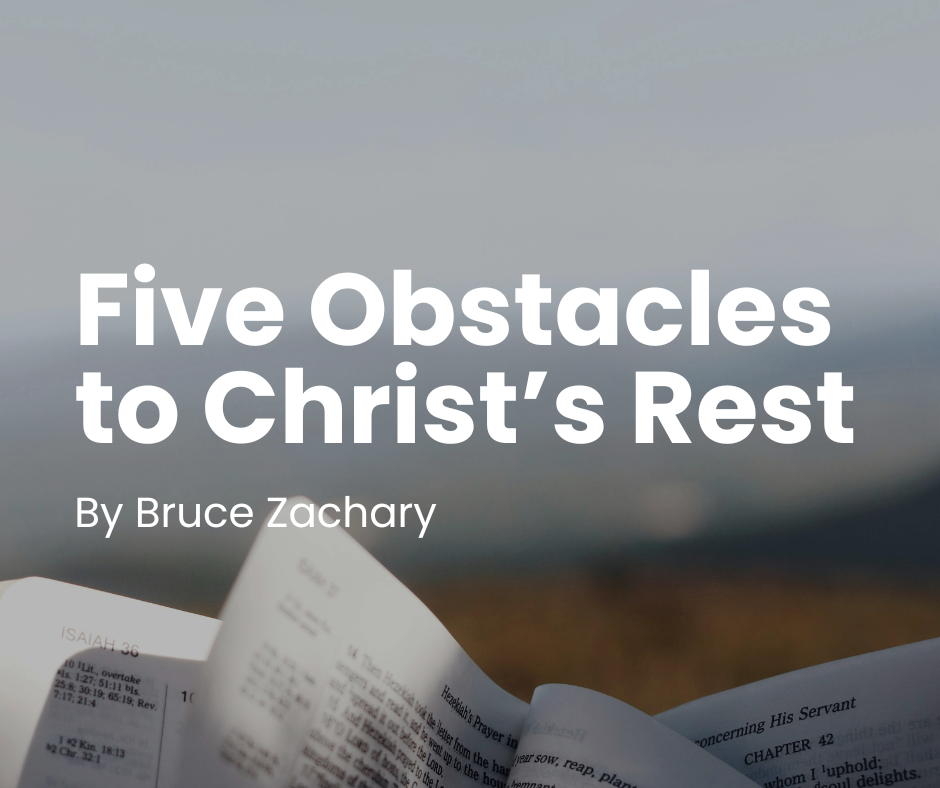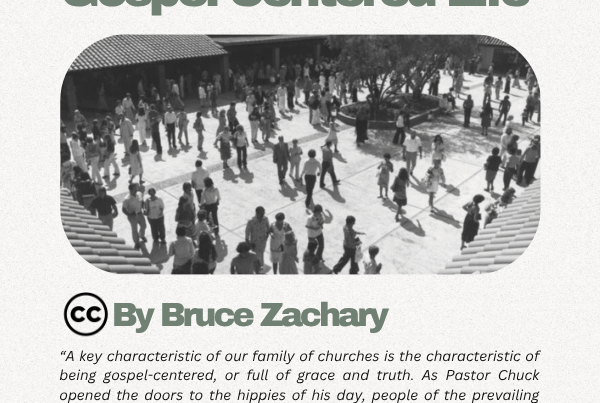
Editor’s Note: This is the second article in a series on rest for our souls. Click here to read the first article, “Jesus Offers a Greater Rest,” published on January 1, 2024.
Your greatest need is rest for your soul! The night that I received Jesus, I experienced rest for my soul for the first time. Being reconciled to God, and receiving spiritual life, resulted in an awareness of wholeness, indescribable peace, and contentment.
The essence of a person is their soul. In effect, you are a soul with a body, rather than a body with a soul. We may be keenly aware of when our bodies are exhausted, our emotions are frayed, or our minds are spinning and we cannot continue with the weight. Nevertheless, most of us do not tend to contemplate that the primary issue may be a restless soul. We are a restless people, with restless souls.
In the first article of the series, I sought to demonstrate why Christ’s rest (rest for our souls) is a greater rest than any other rest that can be contemplated. Here, I hope to describe some of the obstacles to experiencing Christ’s rest.
Beginning in Hebrews 3, the author observes that the Jews did not enter God’s rest (11, 18, 19). The term rest has several references associated with it, such as God resting on the seventh day of the Creation account, Sabbath rest from labor, and the Promised Land (Deut. 12:9). Hebrews 3:7-4:13 contains eleven references to the term rest. The author’s argument is that God has a better rest available for His people in Christ through the New Covenant gospel of grace. In developing the case, the author of Hebrews also reveals some obstacles to Christ’s rest; the heart of the problem is the problem of the heart:
1. Hardened Heart (8, 13, 15)
“Do not harden your hearts…” (8, 13, 15).
This is the second warning in this book. The first came in chapter two about the danger of drifting away (Heb. 2:1). A good heart receives the word of God and is transformed by the Holy Spirit to be more like Jesus. A hardened heart refuses to receive from God or yield to God.
The author of Hebrews refers to the rebellion in the day of trial in the wilderness (8). When the Jews were traveling through the desert wilderness, they camped in a place where there was no water (Ex. 17:1-7). The people were being tested to see what was in their hearts, and they began to doubt God and complain that they were better off in Egypt. But God provided water from a rock because He is good and cares for His people (Cf. 1 Cor. 10:4). Note that some of the first symptoms of a hardened heart are murmuring and complaining and doubts about the goodness of God or whether He cares.
2. Wandering Heart (9-10)
9 “Where your fathers tested Me, tried Me, And saw My works forty years 10 Therefore I was angry with that generation, And said, ‘They always go astray in their heart…’”
During the Exodus, God brought His people to Kadesh. He instructed scouts from each of the twelve tribes to inspect the Promised Land (Num. 13). They returned with a report that the land was indeed good, abundant, and desirable but also reported that the inhabitants of that land appeared mighty. So, rather than trusting God’s promise to give them the land, their hearts wandered astray and longed for Egypt (the world). As a consequence, that generation did not enter the Promised Land (except for Joshua and Caleb, who believed) (Num. 14:40). They wandered in the wilderness for forty years, freed from the world but longing for this world more than God.
A wandering heart is an obstacle to a soul at rest because it vacillates between seeking contentment primarily from this world and primarily from God. God has given us this world to enjoy, but it does not provide rest for the soul. Looking to the things of this world to make our soul whole keeps us from discovering the sufficiency of Jesus.
3. Unbelieving Heart (11-12)
11 “So I swore in My wrath, ‘They shall not enter My rest.’ 12 Beware, brethren, lest there be in any of you an evil heart of unbelief in departing from the living God…”
Why is God so angry about unbelief? Unbelief has at its root a misunderstanding and mischaracterization of God’s nature. Unbelief produces hardship for humanity and is an obstacle to experiencing life with God and Christ’s rest. God warns us, beware (12). He wants us to appreciate the severity of this condition and the dangers it poses. God equates an unbelieving heart with evil (12). Unbelief is the most deadly heart condition of all.
4. Deceived Heart (13)
“Exhort one another daily, while it is called ‘Today,’ lest any of you be hardened through the deceitfulness of sin.”
Sin deceives because it promises something that it can never deliver. A hardened heart is insensitive to God and sin. By definition a person deceived does not know they are deceived. Sin deceives: First, it promises something that it will not deliver. Second, it deceives people into thinking that what happened to others will not happen to them. Third, it deceives by creating a desire for something we know will hurt us. Fourth, sin is a form of escape from pain, and trying to escape pain keeps people from receiving God’s restoration.
5. Rebellious Heart (8, 15, 16)
Rebellion often occurs when a basic desire is unmet and a person believes that God has neglected them. The downward spiral moves from ingratitude for God’s provision to establishing alternative leadership, then to open rebellion, and eventually they stop believing in God.
A Glimmer of Hope:
If you are like me, these heart conditions are discouraging, convicting, and familiar. In my next article, I would like to share how we can experience Christ’s rest. But like a compassionate cardiologist, I want to ensure you that there is hope. It is only a few chapters later that we discover this hope: “Who have fled for refuge to lay hold of the hope set before us. 19 This hope we have as an anchor of the soul, both sure and steadfast …” (Heb. 6:18-19).










